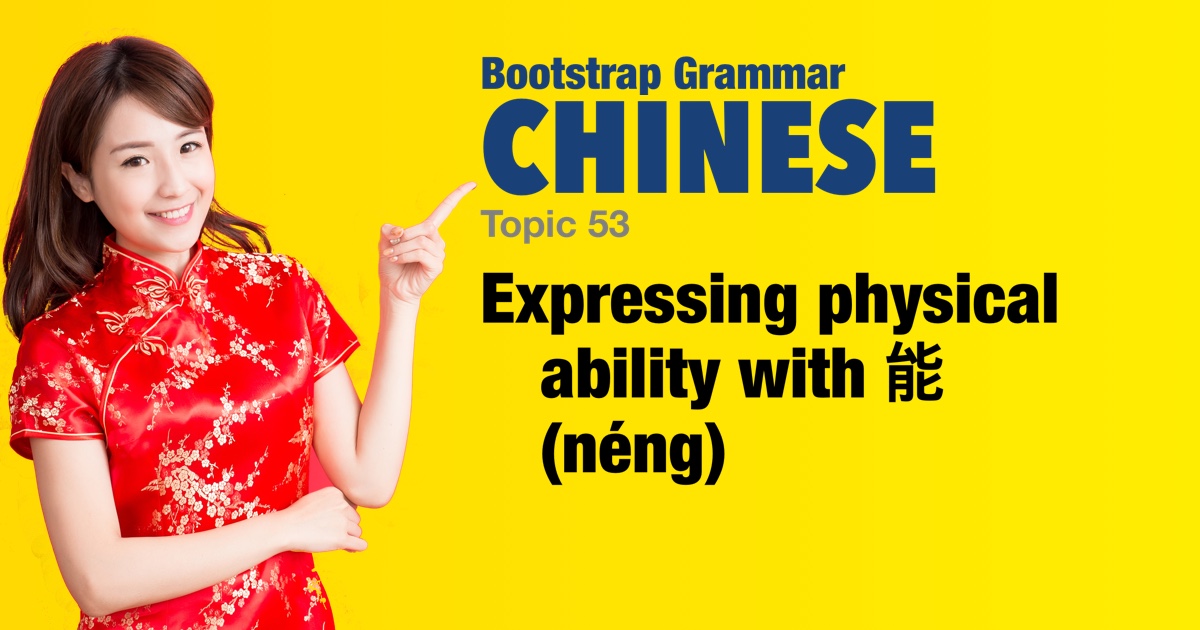Chinese grammar - Expressing physical ability with 能 (néng) |
|||
|
|||
The Chinese verb 能 (néng) is used to talk about physical or mental ability or possibility, similar to 'can' or 'be able to.' The emphasis is on physical or mental ability or possibility, and not on permission, For permission we should use 可以 (kéyǐ). However, there is some overlap between 能 and 会 - both can be used when referring to learned skills. |
| Examples: | |
|
她能跳高。
tā néng tiào gāo. She can jump high.
|
|
|
我们能爬山。
wǒmen néng pá shān. We can climb mountains.
|
|
|
孩子能自己穿衣服。
háizi néng zìjǐ chuān yīfu. The child can dress himself.
|
|
|
我们能潜水。
wǒmen néng qiánshuǐ. We are able to dive.
|
|
|
她能煮饭。
tā néng zhǔ fàn. She can cook.
|
|
|
他能举起杠铃。
tā néng júqǐ gànglíng. He can lift the barbell.
|
|
|
我能跑很长的距离。
wǒ néng pǎo hěn cháng de jùlí. I can run long distances.
|
|
|
他们能轻松地搬动这张桌子。
tāmen néng qīngsōng de bāndòng zhè zhāng zhuōzi. They can easily move this table.
|
|
|
我能用左手写字。
wǒ néng yòng zuǒshǒu xiězì. I am able to write with my left hand.
|
|
|
你能唱这首歌吗?
nǐ néng chàng zhè shǒu gē ma? Can you sing this song?
|
|
|
宝宝能走路。
bǎobao néng zǒulù. The baby can walk.
|
|
 |
|




